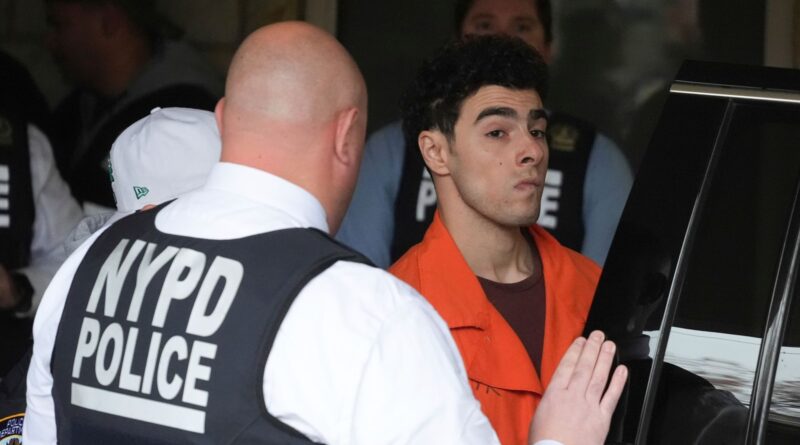Hero or Villain? Opinions Vary on Alleged Healthcare CEO Assassin Luigi Mangione | US News
Take a moment to consider one perspective from outside the George Washington University Hospital in Washington D.C.
“I believe we should create a mural for Luigi, what are your thoughts?” asked a passerby with a grin.
“While I don’t condone murder, it’s refreshing to see CEOs a bit uneasy,” came a reply.
People have mixed feelings about the accused shooter, Luigi Mangione, and not all of them are negative.
Is he a villain or a hero? This is a divisive question in America, and opinions aren’t necessarily split evenly.
A brief search online uncovers a variety of Luigi-themed merchandise, including tattoos, “Free Luigi” signs, and a legal defense fundraiser that has gathered $157,225 (£125,492).
The discussions surrounding the murder tend to focus heavily on Luigi—often at the expense of the compassion that should be directed towards the family and friends of Brian Thompson, the 50-year-old father of two who was shot down in the street.
Following a five-day manhunt, Mangione was charged with first-degree murder, later elevated to murder as an act of terrorism.
If his actions stemmed from frustration with the U.S. health insurance industry, that sentiment resonates with many.
For years, Americans have faced the mounting costs of private insurance for healthcare access, often struggling to receive necessary payments.
The moment when claims get denied by insurance companies typically occurs when individuals are at their most vulnerable, often in urgent medical situations, resulting in countless stories of emotional and financial stress.
However, does any of this serve as justification for the murder of a healthcare executive on a New York street? Or might it?
I asked Sam Beard, the organizer of the legal committee set up to solicit funds for Mangione’s defense, to weigh in on the matter.
Beard remarked: “Morally speaking, it’s a complex issue because we have to apply the same logic in both directions.
“An effective CEO had his life cut short, albeit abruptly and tragically for his loved ones, but he was seen as effective precisely because he profited from denying claims that shortened other people’s lives.”
“From a basic moral perspective, we can’t apply it indiscriminately without recognizing that we’re within an immoral system that diminishes the value of certain lives while elevating others. Thus, when we only scrutinize this as a moral act, we ignore its broader political implications.
“I don’t support anyone’s life being tragically ended, yet it is undeniable that this privatized healthcare system significantly shortens the lives of hundreds of thousands of Americans every few years and may finally be facing its accountability.”
Read more:
Suspect ‘posted about back condition online for years’
What we know about Luigi Mangione
The admiration for Mangione is concerning to authorities in New York, who fear potential copycat incidents.
Health insurance executives and their employees have reported receiving threats and being harassed. “Wanted” posters featuring the CEOs of at least two insurance companies have also appeared around New York.
As the indictment against Mangione was announced earlier this week, New York City’s Police Commissioner Jessica Tisch strongly condemned the support he has received.
“This was a senseless act of violence,” she declared. “We do not celebrate murders, nor do we glorify the killing of anyone.”
While the anger at his supportive reaction is palpable, it’s also undeniable.




